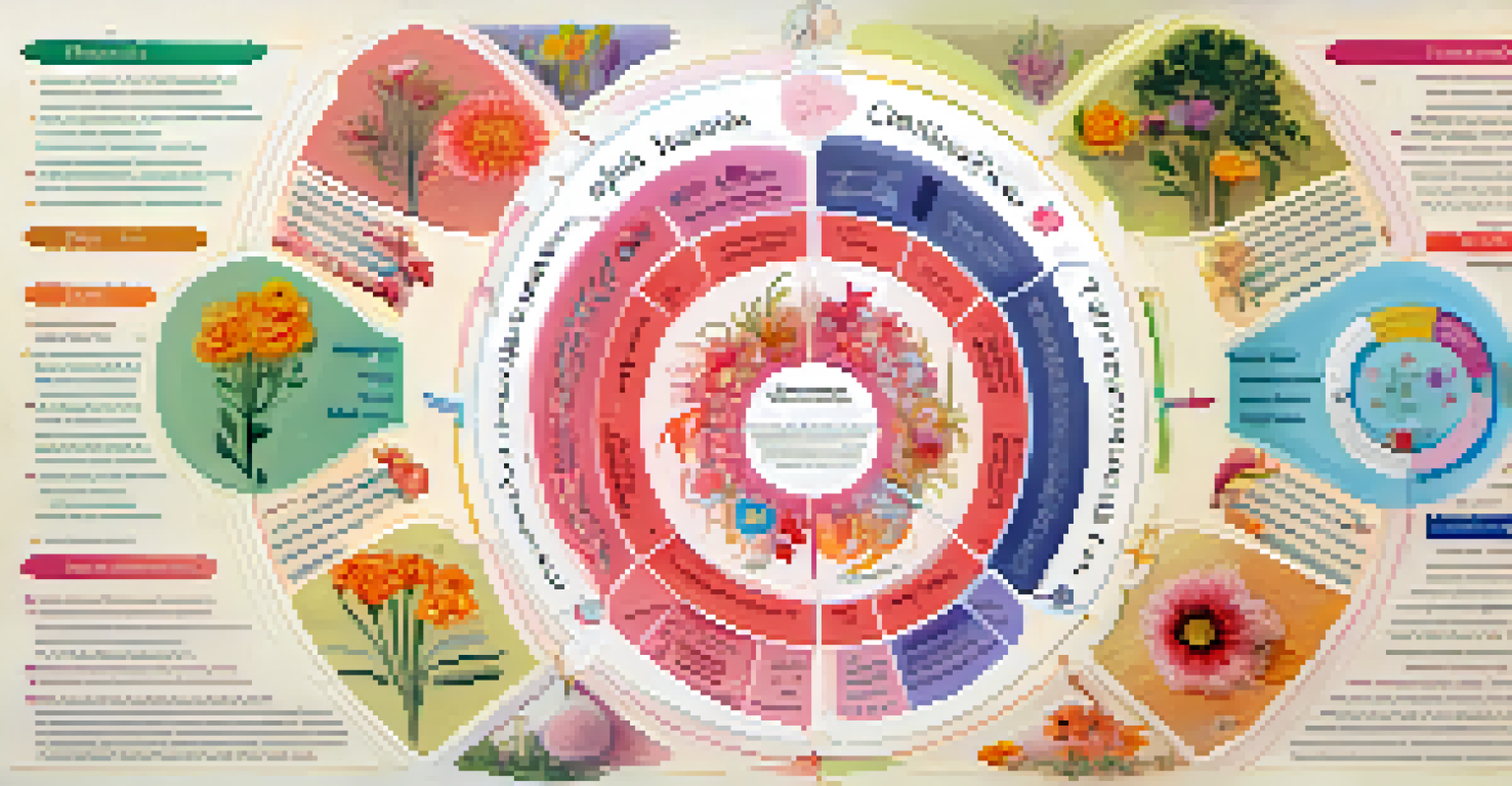Understanding the Basics of Fertility: A Comprehensive Guide

What is Fertility and Why is it Important?
Fertility refers to the natural capability of individuals to conceive and bear children. Understanding fertility is crucial not only for those looking to start a family but also for anyone interested in reproductive health. It encompasses various factors, including age, health, and lifestyle, which can all impact one’s ability to conceive.
Fertility is not just about making babies. It’s about the entire journey of reproductive health and wellbeing.
The importance of fertility extends beyond personal desires; it has societal implications as well. For instance, declining fertility rates in certain regions can influence population growth and economic stability. By grasping the basics of fertility, individuals can make informed decisions about their reproductive health.
Moreover, awareness of fertility can empower individuals to seek help when needed. Whether through medical assistance or lifestyle changes, understanding fertility can lead to better outcomes for those trying to conceive.
Factors Affecting Female Fertility
Female fertility can be influenced by a myriad of factors. Age is one of the most significant; women typically experience a decline in fertility after the age of 30, with more pronounced changes in their mid-30s. Hormonal balance, health conditions, and lifestyle choices like diet and exercise also play critical roles.

For example, conditions such as polycystic ovary syndrome (PCOS) or endometriosis can significantly affect a woman's ability to conceive. These conditions may disrupt the menstrual cycle or cause hormonal imbalances, making it essential for women to monitor their reproductive health.
Understanding Fertility Basics
Fertility encompasses the natural ability to conceive and is influenced by various factors like age, health, and lifestyle.
Additionally, emotional and psychological factors can impact fertility. Stress, anxiety, and depression can lead to hormonal changes that may hinder ovulation. Thus, a holistic approach to fertility is vital, considering both physical and mental health.
Factors Affecting Male Fertility
Just like female fertility, male fertility is affected by numerous factors. Sperm production can be influenced by age, with quality and quantity typically declining after age 40. Lifestyle choices, such as smoking, alcohol consumption, and exposure to environmental toxins, can also have detrimental effects.
The greatest gift is the ability to nurture and create life, but understanding our bodies is essential to that gift.
Health conditions, including diabetes, obesity, and hormonal disorders, may impact a man’s fertility as well. For instance, low testosterone levels can lead to reduced sperm production and affect overall reproductive health.
Moreover, emotional stress can also play a role in male fertility. Stress can interfere with hormone levels and sperm production, highlighting the importance of mental wellness in the fertility journey.
Understanding the Menstrual Cycle
The menstrual cycle is a crucial aspect of female fertility, typically lasting about 28 days, although it can vary among individuals. The cycle involves a complex interplay of hormones that prepare the body for potential pregnancy. Understanding this cycle is key for anyone trying to conceive.
The cycle can be divided into several phases: the follicular phase, ovulation, and the luteal phase. Ovulation is particularly significant, as it's the time when an egg is released from the ovary and can be fertilized by sperm. Knowledge of these phases can help individuals identify their most fertile days.
Lifestyle Impacts on Fertility
Positive lifestyle changes, including a balanced diet and stress management, can significantly enhance fertility for both men and women.
Tracking the menstrual cycle through apps or calendars can provide insights into ovulation patterns. This information can empower individuals to time intercourse effectively, increasing the chances of conception.
Common Fertility Myths Debunked
There are many myths surrounding fertility that can lead to confusion and misinformation. For example, a common belief is that women must conceive before the age of 35 to be successful. While fertility does decline with age, many women successfully conceive later in life.
Another myth is that taking hormonal birth control has a long-term negative impact on fertility. In reality, most women regain their fertility shortly after stopping birth control. Understanding these myths can help individuals make more informed decisions regarding their reproductive health.
It's essential to rely on credible sources for fertility information rather than myths. Engaging with healthcare professionals can provide accurate insights and guidance tailored to individual circumstances.
Lifestyle Changes to Enhance Fertility
Making positive lifestyle changes can significantly enhance fertility for both men and women. A balanced diet rich in whole foods, fruits, vegetables, and healthy fats can improve reproductive health. Regular exercise is also beneficial, as it helps maintain a healthy weight and reduces stress levels.
Furthermore, avoiding harmful substances such as tobacco and excessive alcohol can have a positive impact on fertility. These substances can adversely affect sperm quality in men and disrupt hormone levels in women.
When to Seek Fertility Help
If conception efforts are unsuccessful after a year, consulting a fertility specialist can provide essential support and guidance.
In addition to physical health, mental wellness is critical. Practices such as mindfulness, yoga, and therapy can help manage stress, which is crucial for maintaining hormonal balance and overall reproductive health.
When to Seek Help for Fertility Issues
If you’ve been trying to conceive without success for over a year, it may be time to seek help from a fertility specialist. Early intervention can increase the chances of conception, as many fertility issues can be addressed with medical assistance. Understanding when to seek help is vital for those facing challenges in their fertility journey.
Both partners should consider a fertility evaluation if there are concerns. This can provide a clearer picture of potential issues, allowing for tailored treatment options. Factors like irregular cycles, previous miscarriages, or known health conditions should not be overlooked.

Lastly, remember that seeking help is a sign of strength, not weakness. The fertility journey can be complex and emotionally taxing, and professional support can provide guidance, reassurance, and coping strategies.